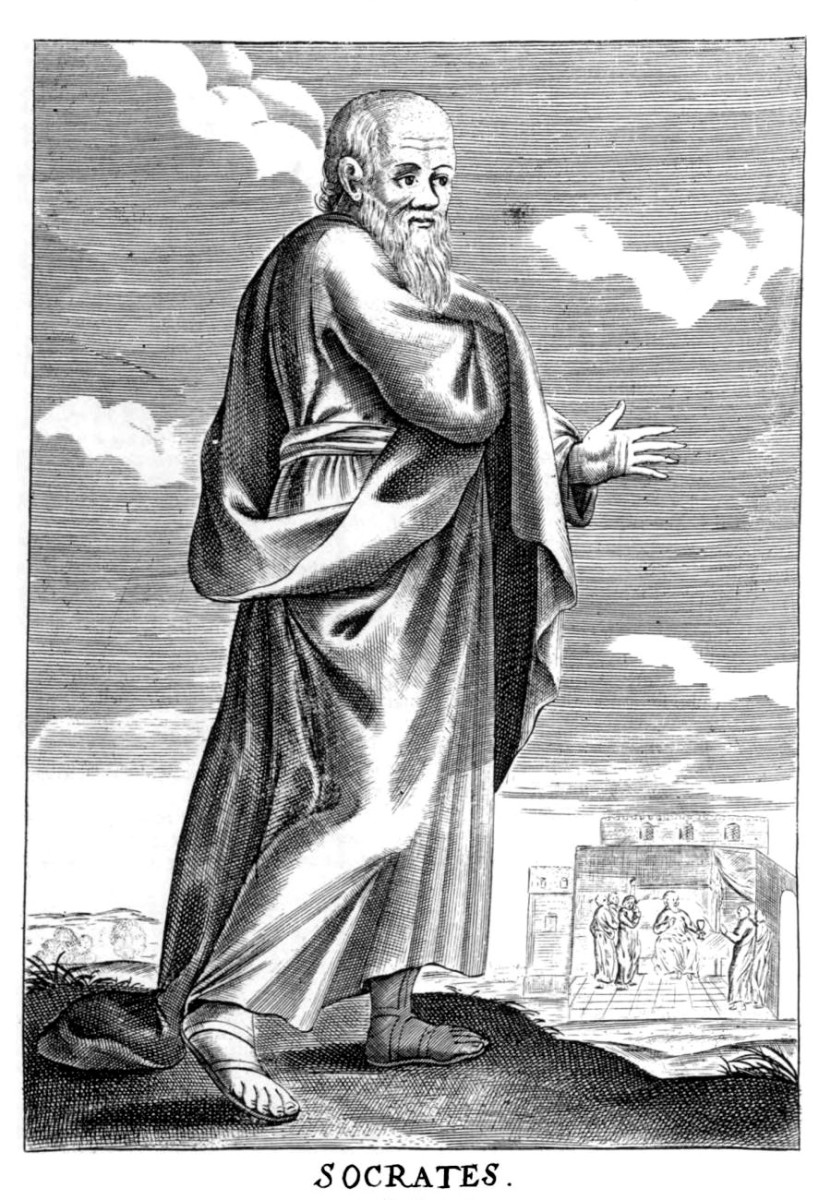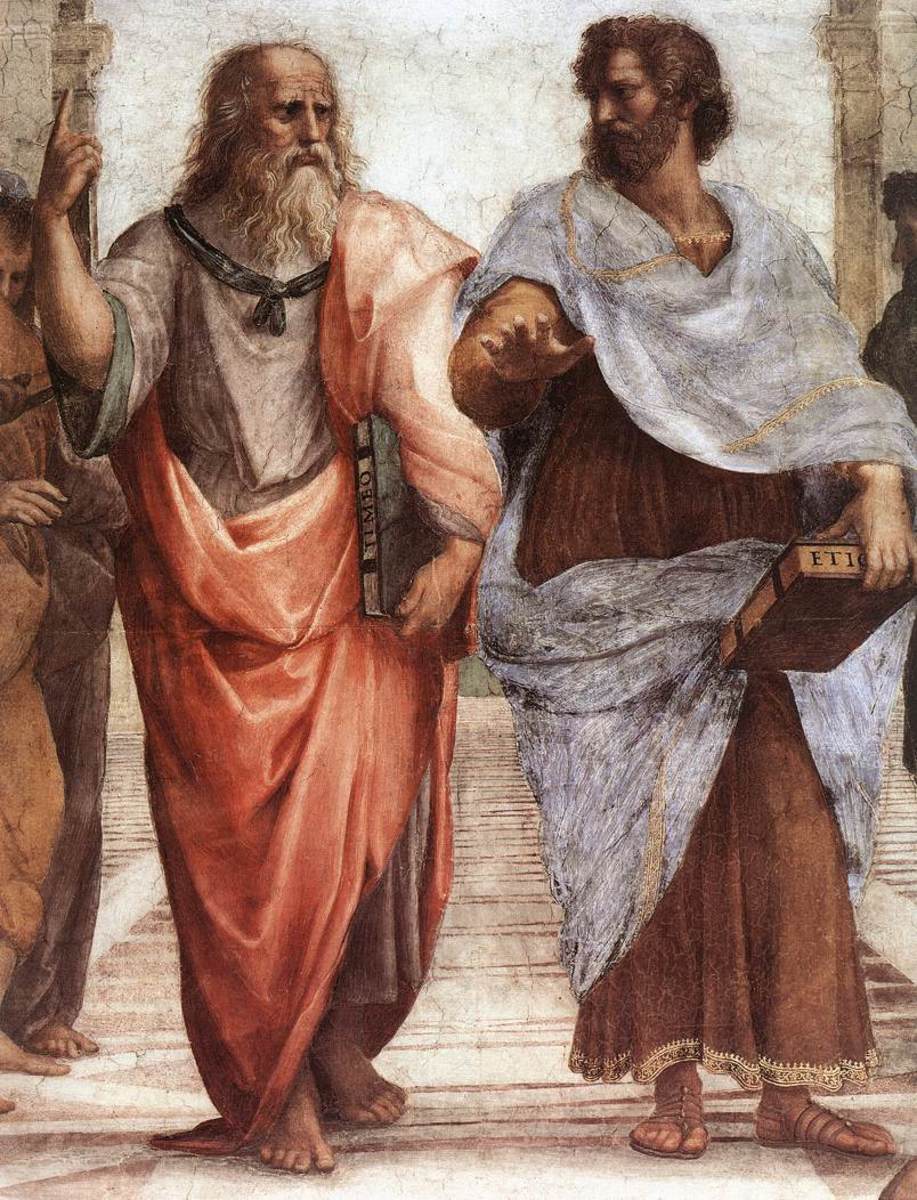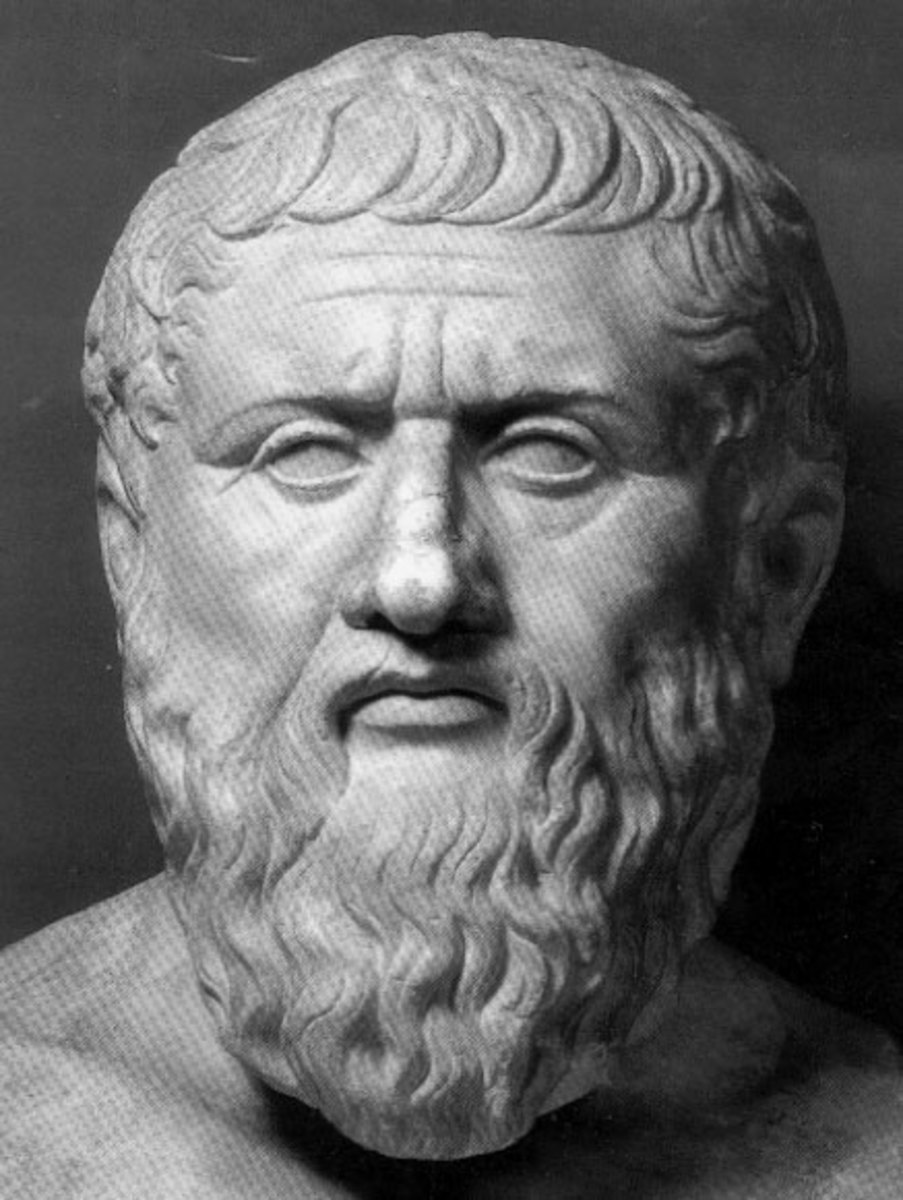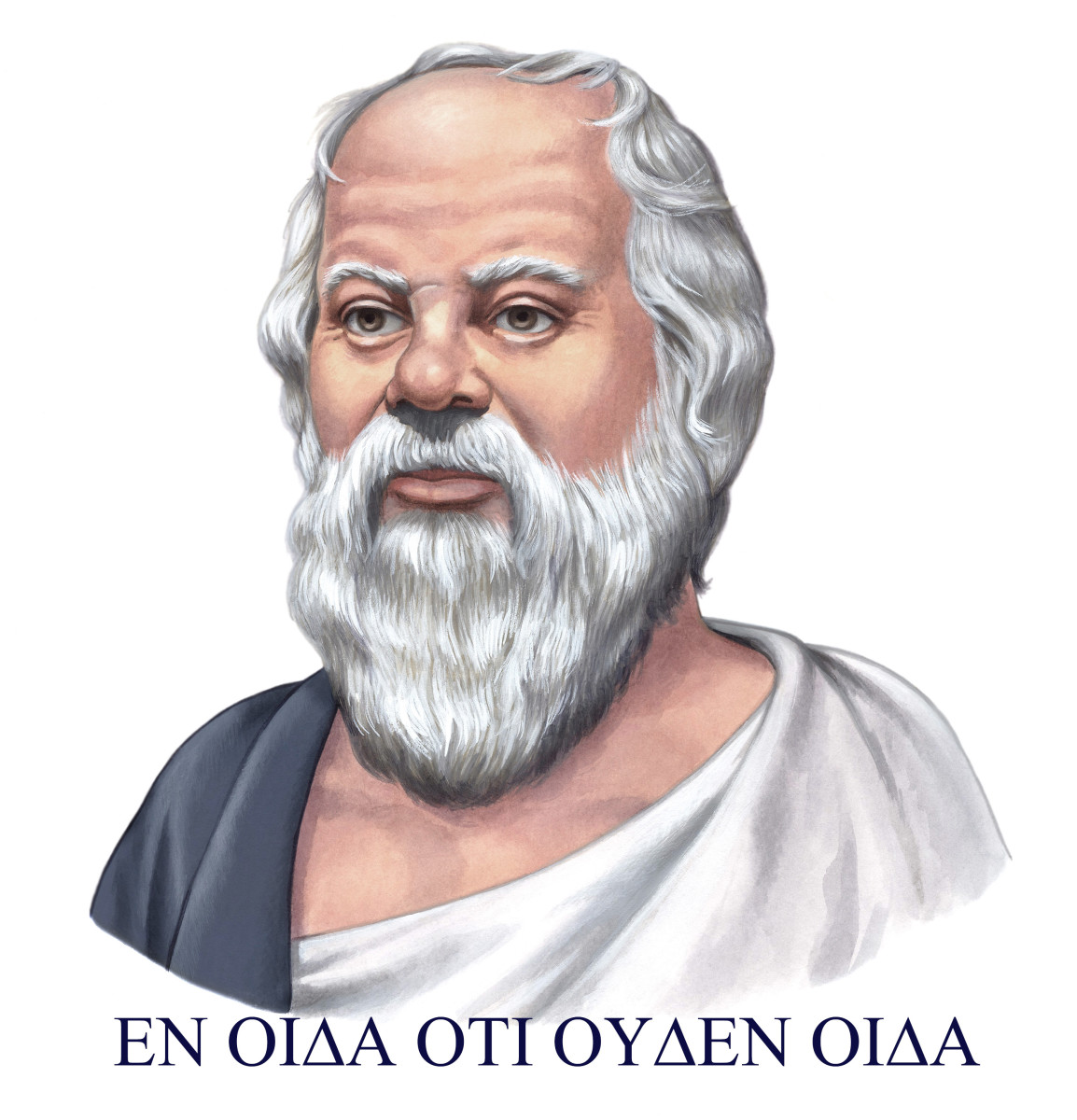Philosophy Simplified: Sophism and Socrates
Introduction
From the Pre-Socratic era we arrive to something new: still not classical, but a generation of philosophers resembling the Classical masters. I prefer taking Classical philosophy and sophistry together, since the former one essentially grew out to oppose the latter one. Sophistry is what sees the concentration of knowledge and wealth to Athens and modern-day Greece.
Arate means virtue, excellence, and in ancient Greece, a number of philosophers started traveling across the lands to teach the arate. Of course, they charged a great deal of money for their services, effectively acting as "private teachers" to the nobility of the poleis (Greek city states). σοφίζω, sophizo means "I am wise" in ancient Greek, one who is wise or knows wisdom.
The rest of my philosophical articles
- Philosophy Simplified: Introduction and Table of Contents
A beginner's guide to philosophy, from Thales to Wittgenstein, from ancient Greece to modern Britain. Each article describes an important topic in philosophy, aimed to teach and entertain.
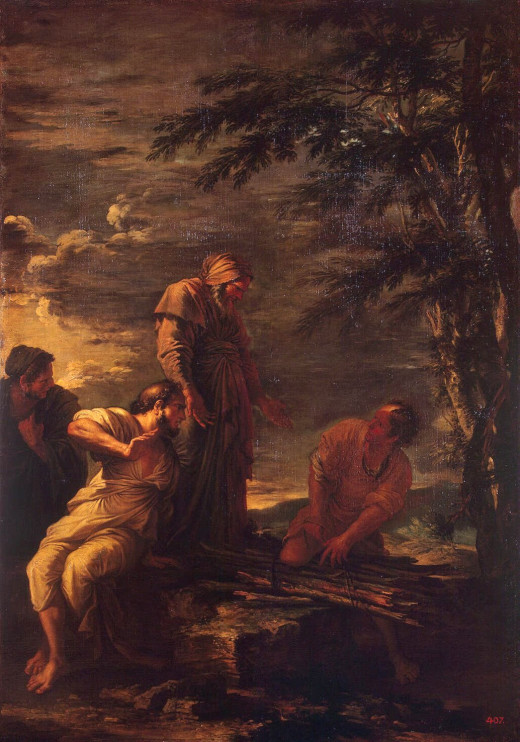
Protagoras
Protagoras is considered to be the first sophist. Protagoras (490BC to 420BC) was taught by Democritus, father of the atomic theory. He however decided to not pursue mathematics, and turned to relativism instead.
"Man is the measure of all things: of the things that are, that they are, of the things that are not, that they are not."
It simply means that everything is subjective, and depends on the viewpoint. He is also said to be the first agnostic:
"Concerning the gods, I have no means of knowing whether they exist or not, nor of what sort they may be, because of the obscurity of the subject, and the brevity of human life."
We do not know much more about him, because he was expelled from Athens due to his agnosticism, and all of his works were burned (this particular event is mentioned even by Cicero).
Gorgias
Following Protagoras's teachings, Gorgias (485BC to 380BC) is famous for his four statements:
- Nothing exists;
- Even if something exists, nothing can be known about it; and
- Even if something can be known about it, knowledge about it can't be communicated to others.
- Even if it can be communicated, it cannot be understood.
These statements summarize the philosophy of the next two thousand years (and even more?).
- Ontology (nothing exist) is the main question in medieval philosophy (problem of universals, metaphysics).
- Epistemology is debated in the 17th and 18th century, with empiricism and rationalism in the highlight (nothing can be known about it).
- Language philosophy is debated by both Francis Bacon and Ludwig Wittgenstein, in the 17th and the 20th century respectively.
- Existentialism is also a central question in the 20th century, referring to the last line (understanding).
These statements show us the absurdity of the sophists' agnosticism and relativism: the denial of everything, the denial of knowledge, the denial of communicating and the denial of understanding. With his denial of values, he is considered to be the father of nihilism.
Socrates
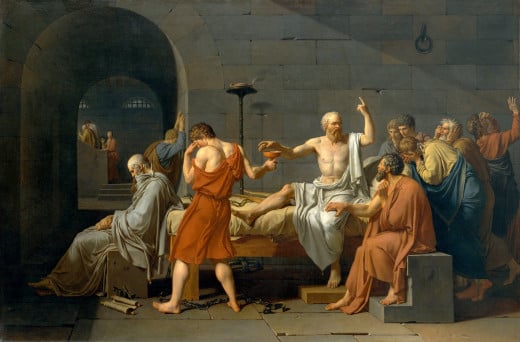
Socrates
Socrates' life is the turning point in Greek philosophy, it's quite evident from the fact that the era before his life is literally called "the era before his life", "Pre-Socratic era". An Athenian (470BC or 469BC to 399BC), he could afford to live off the state and spend all his days teaching and debating.
The Socratic problem
We don't know anything about his views and thoughts, Socrates believed in oral teaching, everything he was supposed to be comes from his students, mostly from Plato. Many scholars believe (and they are right to do so) that the Socrates portrayed by Plato is a colourful, literal interpretation of the master. Plato describes him as a somewhat ugly person, capable of defeating anyone on the field of rhetoric, a master kind to his students. With Plato's writing style considered, Socrates could even be his "ideology of a perfect teacher". It is known however that Socrates did exist, because records have survived about his trial and execution.
Trial and execution
Many anecdotes survive about the accusation, one being that he criticised the sentence of the strategoi who were executed for desecrating (not burying) the dead during the war against Sparta, another one claiming that Socrates was involved with the oligarchy in Athens and his trial was a political move.
Nevertheless, he was tried for "corrupting the youth" and for asebeia, meaning impiety. Because he is a controversial public figure often criticising democracy, the majority of the demos votes in favour of conviction. Before the second vote, he allegedly gave a sarcastic speech mocking the crowd, leaving his situation even worse. He refused to flee the city, even when his students and companions proposed a planned escape from the prison.
He was sentenced to drink paralytic poison, and his death was described in detail by Plato, who claimed that he had been present. Plato and the other students keep talking to the master as his legs went numb, as his waist got paralyzed and as in the end he died. His last words were:
"Crito, we owe a rooster to Asclepius Please, don't forget to pay the debt."
Asclepius is the Greek god of curing diseases, and his last words are interpreted to mean that he "took upon himself the corruption of Athens", making Socrates a figura Christi, a martyr resembling Jesus (or in reverse? Whichever you would prefer).
The Socratic method
A problem is broken down into simpler questions, and by answering these questions the problem may be solved. This could be seen as the hypothesis stage in the modern scientific method. The point is to root out the contradictions, making the Socratic method effectively a negative method of hypothesis elimination. 'Maieutics' refers to a teacher acting as a 'midwife' to teach the students much like a nurse treats the newborn.
"I know that I know nothing."
Although effectively not a quote from Socrates, this sentence defines one of Plato's main principles: in order to learn, one must accept the fact that one knows nothing.
I am wiser than this man, for neither of us appears to know anything great and good; but he fancies he knows something, although he knows nothing; whereas I, as I do not know anything, so I do not fancy I do. In this trifling particular, then, I appear to be wiser than he, because I do not fancy I know what I do not know.
— Plato's ApologyRecommended reading
Other views
The pursue of virtue:
Socrates believed that one's goals should be to pursue the virtues. He considered friendship to be of great importance, along with community spirit and valor.
Politics:
Socrates openly opposed democracy, claiming that "ideals belong in a world only the wise man can understand", meaning that governance should be left to the philosophers. Wait a second. Read on, and you will understand my problem with this: it's extremely Platonistic, the portrayed Socrates' words reflect Plato's exact views, leading to the Socratic question.
The social gadfly:
"If you kill a man like me, you will injure yourselves more than you will injure me."
In Plato's Apology, Socrates insists on being a "gadfly", a martyr to break the status quo in Athenian politics. The social gadfly refers to a person who attempts to break a status quo by bringing in upsetting or novel information or questions.
Anamnesis:
The opposite of amnesis, amnesia, anamnesis means remembrance. Socrates claimed that knowledge isn't gathered through learning but through remembrance, anything we "learn" is simply remembering, essentially making anamnesis the opposite of tabula rasa. This is Socrates's answer to the sophistic paradox:
Meno: And how are you going to search for [the nature of virtue] when you don't know at all what it is, Socrates? Which of all the things you don't know will you set up as target for your search? And even if you actually come across it, how will you know that it is that thing which you don't know?
— Plato: MenoRecommended for watching
© 2015 Medvekoma



